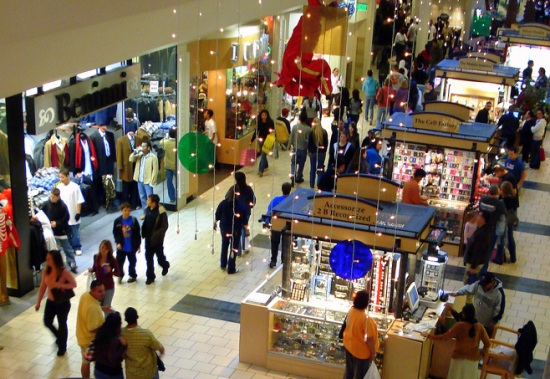With Christmas over for another year, many consumers will be breathing a huge sigh of relief – not only because the cost of the festive season has left budgets tight, but because entering a shop without hearing “I Wish it Could be Christmas Every Day” and “Jingle Bells” on repeat will once more be a possibility. For the Scrooges among us, the return to generic muzak may even be something to celebrate – especially as it could end up saving consumers a large amount of money.

In a study conducted by the Royal Holloway University in London, researchers found that popular Christmas songs can actually encourage shoppers to spend a little extra at the tills. So rather than being there simply to incite a feeling of festive joy, the Christmas songs cunningly played over loudspeakers in stores nationwide are also a clever marketing tool.
Dr Alan Bradshaw, of Royal Holloway, is a senior lecturer in marketing and was one of the lead researchers in the study. He believes that stores can subliminally entice shoppers into their premises simply by playing Christmas songs, thereby overriding the choices of the individual consumer.
He says; “Festive jingles are force fed to Christmas shoppers in a bid to change their mood, influence their sense of time and what sort of products they buy.
“In other words, this is an attempt to manipulate your shopping habits in a way that you might barely be aware of.
“Often we are told that we have the freedom to choose where we want to shop, but during Christmas the use of music in this way is so ubiquitous that our freedom to choose disappears.”
Of course, many studies have been conducted previously in an attempt to prove that shoppers are being manipulated by stores using their senses. Supermarkets, for example, have been known to pump the smell of freshly baked bread through their premises in order to make customers feel hungry or tempted by baked goods – thus spending more than they would have originally.
Additionally, in a separate study, Swiss researchers discovered that relatively simple scents can persuade consumers to spend around 20 per cent more than they would with a complex or neutral scent in store. 400 customers took part in an experiment which saw a simple scent, a complex scent and a neutral scent being released into a St Gallen home store. The 100 shoppers who were chosen to be exposed to the simple scent spent more, and also chose to put more items in their basket – a clear indication that sensory manipulation really does work.
Yet Dr Bradshaw, who conducted his research in conjunction with Professor Morris Holbrook of Columbia University, is concerned that many stores which use the “muzak” technique are dumbing down complex sounds in tracks. This, he claims, helps to put customers at ease, but also degrades culture by removing diversity from individual musicians.
He concludes; “Not only is this bad for musicians and the dignity of their work, representing a triumph of commercial greed over artistic creativity, but it can have negative social implications such as promoting a culture of non-listening.
“Whether you’ve finished your Christmas shopping or not, it is important for us all to be more aware of what we’re listening to.”
Do you find the urge to purchase additional items greater at Christmas, and if so do you believe the music played in stores plays a role in this burst of consumer confidence? Now that you are aware of some of the tricks stores play during the festive season, will you keep an eye (and ear!) out for this particular technique next year?